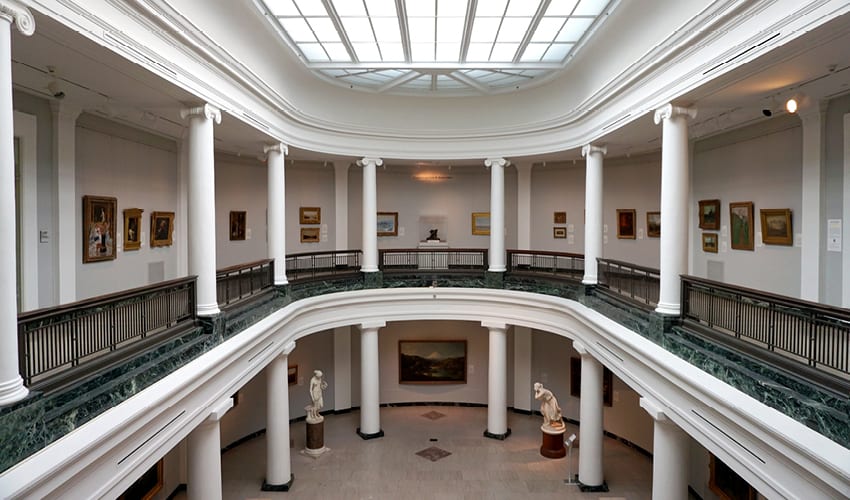Rackham Graduate School has received a grant of $400,000 from the Andrew W. Mellon Foundation, with the bulk of these funds being put toward the creation of a two-year pilot Summer Program in Public Engagement and the Humanities.
During the summer pilot program, which will launch in 2019, humanities faculty and graduate students will collaboratively explore, learn, and practice skills to present their research while aiming to narrow the gap between humanities and general audiences. A small group of six faculty and six graduate students will spend eight weeks during the summer learning the tools of public communication, exploring why it matters specifically to the humanities, and implementing their new knowledge and shared understanding to specific projects that integrate research and engagement.
“There is on the one hand a disconnect between what professionally trained humanists do and why that matters for society, and, on the other hand, what society knows and understands about humanities research,” says Rackham Associate Dean for the Humanities Arthur Verhoogt. “What this program addresses is that humanities scholars are often not trained—and neither do they always view it as their role—to engage with diverse audiences in accessible and meaningful ways.”
The program will consist of a mix of workshops, collaborative work, site visits, and hands-on activities that all allow participants to explore issues of public engagement and the humanities in more depth. Workshops will be geared toward training participants in public writing and public communications. During site visits, participants will travel to local organizations, such as museums, libraries, or nonprofits, where they will have the chance to have a structured conversation with one or more hosts at that organization.
We believe that our program is unique … and will directly lead to contributions to the public sphere.Michael J. Solomon, Interim Dean
In addition, throughout the program, participants will work on a project that they will then shape into an accessible public presentation. These public presentations can take many forms, and part of the program is meant to introduce the participants to the different forms of public outreach and communication, from writing to video presentation, and from exhibit to interactive digital project.
“We believe that our program is unique,” says Rackham Interim Dean Michael J. Solomon, “both in its focus on collaborative faculty and graduate-student training and in its mix of workshops, site visits, and project‐based approaches that will directly lead to contributions to the public sphere.”
The Summer Program in Public Engagement and the Humanities adds to Rackham’s growing and evolving commitment to public scholarship and academic and professional development. The former Arts of Citizenship program became the Rackham Program in Public Scholarship in 2015 and now features a slate of four core programs: the Institute for Social Change, a four-and-a-half day introduction to public scholarship for up to 25 students; Public Engagement Fellowships, which have also been supported by Mellon and place students in nonprofit and educational organizations to use their research skills on various projects for public audiences; Public Scholarship Grants, providing four to five awards annually of up to $8,000 for student-led projects with community partners outside the university; and the Engaged Pedagogy Initiative, an eight-session training during which graduate students learn how to create a community-based learning course.
A key element of this new program is its equal emphasis on faculty involvement and student participation. Through the close integration of faculty members, the program aims to generate a cohort of trained academics who can return to their home departments as exemplars of how to integrate humanities research and public humanities. For students, its goal is to provide them with additional skills and experience that will more strongly position them for hybrid careers in a range of environments.
“I am especially pleased about this program because it extends our broader campus commitment, through the Presidential Initiative in Public Engagement, to increase the societal impact of research and teaching at the University of Michigan,” says Martin A. Philbert, U-M provost and executive vice president for academic affairs.
The grant is meant to honor historian, former Rackham Dean, and Mellon Foundation President Earl Lewis on his retirement from the foundation. Of the $400,000 total included in the grant, $350,000 will be used to create the two-year summer pilot. An additional $50,000 will be added to the Earl Lewis Fund for Outstanding Graduate Students, which supports exceptional Ph.D. students with a commitment to social responsibility and a sensitivity to diverse viewpoints.
The Summer Program in Public Engagement and the Humanities will begin accepting applications next fall.

